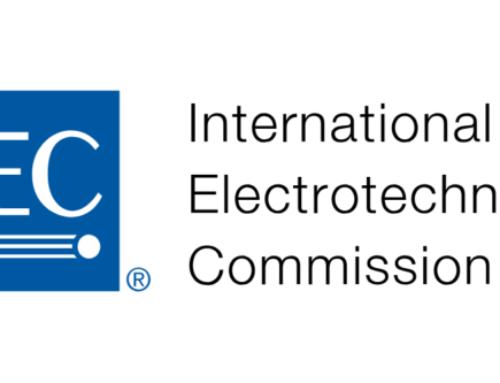China officially committed to the possibilities of blockchain in late 2019, when it elevated blockchain technology to a national priority. Since then, China has expedited the development of the Blockchain Service Network (BSN). One of the main goals of China’s national blockchain infrastructure is to build an open-source protocol that enables enterprises – both domestic and foreign-invested – to access, build and adopt blockchain technology into their businesses.
In addition, coupled with efforts to develop blockchain policies, China has long pushed technical standards to support blockchain technology.
International Standards
In April 2021, IEEE 2142.1-2021 Recommending Practice for E-invoice Business Using Blockchain Technology, promoted by the Shenzhen Taxation Bureau and Tencent Technology, was officially confirmed and released by IEEE-SA. This standard describes the blockchain-based application reference architecture of e-invoice businesses, illustrating in detail the roles of participants, typical business scenarios, platform frameworks, and security requirements.
This is the world’s first international standard in IEEE for the application of blockchain-based electronic invoices. As such, it can promote global consensus, and guide the high-quality development of blockchain electronic invoice application all over the world.
In addition, during the plenary meeting of ITU-T SG16 in April 2021, three proposals led by the China Academy of Information and Communications Technology (CAICT) for the development of international blockchain standards were approved, including:
- ITU-T F.DLT-FAM – Function assessment methods for distributed ledger technology (DLT) platforms
- ITU-T H.DLT-PAM – Performance assessment methods for distributed ledger technology (DLT) platforms
- ITU-T H.DLT-TFI – Technical Framework for DLT Interoperability
These standardisation proposals are based on the research results of the China Communications Standardisation Association (CCSA) TC1 and Trusted Blockchain Initiatives; thus they represent the consensus of China’s blockchain industry actors, and the same time marking an important step for China’s blockchain standardisation to go global.
Association Standards
On 12 April 2021, Beijing Fintech-Industry Alliance officially released the association standard T/BFIA 005-2021 Reference Framework for Blockchain Technology Financial Application Technology. This standard is applicable to typical financial scenarios such as supply chain finance, trade finance, payment and settlement, asset securitisation, etc. Specifically, it provides a system-wide technical reference framework for banking, securities, insurance, payment institutions and financial asset trading institutions, ranging from business application design, interface design, platform design, infrastructure construction and so on.
Technical Committees
On 28 May 2021, the State Administration for Market Regulation (and SAC) approved the establishment of the National Technical Committee for the Standardisation of Blockchain and Distributed Accounting Technology (SAC/TC 590) – with the aim to contribute to the standardisation of the development of blockchain and distributed accounting technology in China. The work of TC 590 corresponds to the Blockchain Technical Committee in ISO (ISO/TC 307); therefore, it will help promote China’s active participation in international standardisation activities targeting blockchain technology. According to MIIT, as for now, all the 71 members of TC 590 are representatives from Chinese ministries, institutions, enterprises and universities.
SESEC will keep monitoring the development of emerging technologies in China, providing timely updates to our stakeholders.




